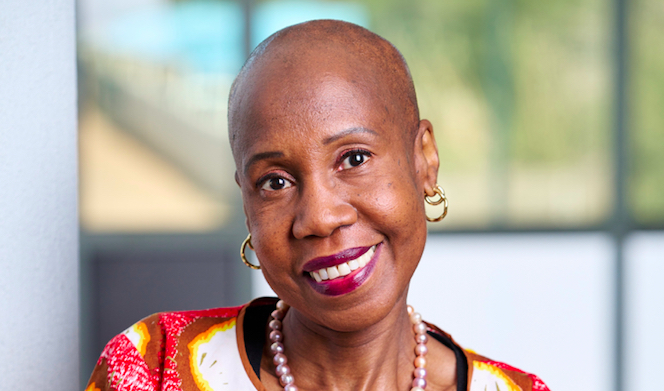The voices of young people in discourses to address global issues cannot be overemphasised.
They are affected by the crises raging in the world around us, be it climate change, conflicts and wars and unemployment.
Listening to their views and perspectives, equipping them with information to understand and appreciate the mechanisms in place for countries to address these challenges is critical.
Model UN provides the platform for pupils to get to know the role of the UN, its principles and how it functions.
The UN in Namibia has been convening Model UN for more than a decade, allowing students as young as 14 to understand the dynamics of international policy and the importance of diplomacy.
However, more than this, it has provided the ability for them to become confident and conversant on issues that affect them, which is at the heart of Model UN.
REGIONAL FOOTPRINT
The convening of Model UN in Namibia is a partnership between high school pupils, who are champions for change; the teachers, who have facilitated their engagement; the British High Commission in Namibia, which has contributed financially to this programme for the past four years; and the UN.
Model UN Namibia has seen an increase in female representation and empowerment among Namibian girls, with around 70% of participants being female.
The programme has expanded its regional footprint over the past five years, with participation from 150 participants from the north, 175 from the coast, 1 500 from the south and 3 500 from central Namibia.
Over the past 12 years, the Model UN conference has empowered Namibian students to take on leadership roles, with 20 girls co-chairing sessions and 200 boys involved in conference coordination.
Just over 10 000 pupils have been directly impacted through the conference and mock simulation participation.
According to Charles Moore, British High Commissioner to Namibia: “Namibia’s youth have the ability, the passion, and the intellect to ensure that the Land of the Brave offers an effective and significant contribution to any regional, continental or global forum for debate and for some pupils, Model UN can be the start of that amazing journey.”
DEADLINE WORRIES
Model UN also provides an excellent platform for high school pupils to engage in topical issue while simulating the United Nations’ inner workings; pupils are expected to explore treaties and conventions and engage in critical discussions.
This year it was gender equality and women’s empowerment.
The discussion is timely as last year, 2023, marked the halfway point to the 2030 deadline for achieving the Sustainable Development Goals.
The SDGs were adopted by the UN General Assembly in 2015 to address social, economic and environmental challenges.
The review showed that more than half of the 169 sub-goals were behind schedule, and more than 30% had regressed.
Specifically, on gender equality, not a single indicator had been fully achieved and this is worrying.
The world is still falling short on its commitments to women and girls.
In 2025, the Beijing+30, marking the 30th anniversary of the Fourth World Conference on Women and adoption of the Beijing Declaration and Platform for Action will be held in March 2025.
This will be another opportunity to review and appraise the implementation of the Declaration and Platform for Action.
NAMIBIA MAKES MAJOR STRIDES
Bringing the discussion to the country level, Namibia has made major strides in advancing gender equality and women’s empowerment in areas such as gender parity in primary education and increasing women’s representation in government.
Namibia boasts a 95% enrolment rate for both girls and boys in Grades 1-12 and women hold 51% of seats in the National Assembly and 14.3% in the National Council.
Key leadership positions, including the vice president and prime minister, are held by women.
Legal frameworks supporting gender equality, particularly in combating violence against women, are largely in place.
However, challenges persist, as evidenced by instances of early marriage and reports of gender-based violence.
A gender pay gaps exists with women in Namibia earning 17% less than men on average.
This limits women’s access to economic opportunities and contributes to gender equality.
Gender-based violence remains a pressing issue, nearly one in three women have experienced physical violence and around one in four have faced sexual violence.
This constitutes a grave human rights violation and has serious consequences for women’s health, well-being and participation in society.
THE BIG PICTURE
Gender equality is a central pillar of the SDGs and overcoming gender inequality is integral to addressing issues such as poverty, hunger and climate change. When women are empowered, societies become more equitable, inclusive and resilient.
Cultivating advocates for gender equality among school pupils is crucial, considering the slow progress to address the issue.
UN Women indicates that at the current rate, it will take an estimated 300 years to end child marriage, 286 years to close gaps in legal protection and remove discriminatory laws, 140 years for women to be represented equally in positions of power and leadership in the workplace and 47 years achieve equal representation in national parliaments.
LEADERS OF TOMORROW
Our school pupils of today are our leaders of tomorrow in the public and private domain, which are spaces that many of us will vacate.
It is our obligation to ignite a passion for social change and foster a generation that is ready to build sustainable and equitable societies.
As UN secretary seneral Antonio Guterres aptly said: “The women of my generation did not win the fight for their rights only to see their daughters and granddaughters fight the same battle.”
Achieving gender equality is all our business and Model UN is the platform that prepares pupils to shape their positions and become proactive supporters of gender equity.
– Hopolang Phororo is the United Nations resident coordinator in Namibia
Stay informed with The Namibian – your source for credible journalism. Get in-depth reporting and opinions for
only N$85 a month. Invest in journalism, invest in democracy –
Subscribe Now!


